



November 19, 2015 at RUSH University Medical Center
OLC went to Chicago to meet with online learning professionals, educators and administrators to address the opportunities and challenges we all face in online higher education today.

Join your fellow online learning professionals, educators and administrators to hear from the experts and collaborate on solving the challenges we all face in online higher education today. You’ll get the chance to hear from regional experts regarding current and emerging trends in online learning, collaborate and network with your regional peers during group discussions on top-of-mind challenges that may impact the future of online learning – and your career.

*A $25 fee will be charged for all cancelled registrations. There will be no refunds within 1 week of event date. If you are not able to attend, a substitute may attend in your place. The name of the substitute must be emailed to the conference@onlinelearning-c.org.
We will take a deep look at the challenges and impact of online learning in higher education today and work together to collaborate, define and help shape the changing university.
Presentations will be followed by facilitator-led discussions that will allow participants to delve into each topic in greater detail.
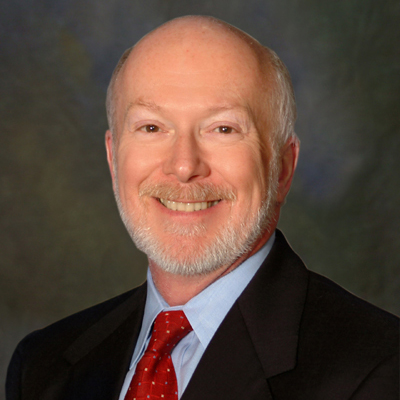
Marshall Hill
Executive Director
NC-SARA
Marshall Hill
Executive Director
National Council for State Authorization Reciprocity Agreements
NC-SARA
Higher Education needs a new way for states in the U.S. to oversee the delivery of postsecondary distance education. The current process is too varied among the states to support quality assurance and assure consistent consumer protection and too cumbersome and expensive for institutions that seek to provide education across state borders. The State Authorization Reciprocity Agreement is a voluntary agreement among member states, districts and territories that establishes comparable national standards for interstate offering of postsecondary distance education courses and programs, improves efficiency, and lowers institutional costs. This presentation will provide an overview and progress report on the SARA initiative. As of early November 2015, 36 states have joined.
Marshall A. Hill is Executive Director of the National Council for State Authorization Reciprocity Agreements (NC-SARA), which provides a voluntary, regional approach to state oversight of postsecondary distance education. His involvement with SARA spans work with the Presidents’ Forum/ Council of State Governments drafting team, the development of SARA agreements with the country’s four regional higher education compacts, and membership on the National Commission on Regulation of Postsecondary Distance Education.
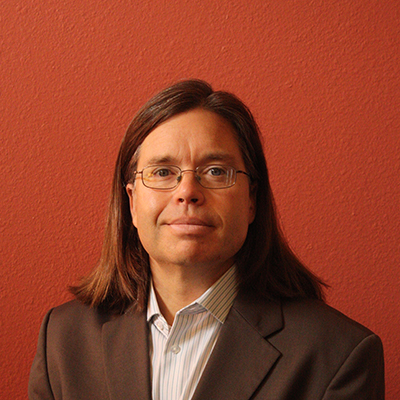
Dr. John Whitmer
Blackboard, Inc.
John Whitmer
Director of Platform Analytics and Educational Research
Blackboard
Faculty and academic departments creating innovative educational practices are often starved for useful data and analysis to determine whether their innovations made a difference. Assessment efforts are often slow, costly, and limited to large-scale comparisons of outcomes. The adoption of academic technologies creates a rich data source that provides insights not previously possible in terms of the level of detail provided, the speed at which it can be accessed, and the potential scalability of analysis. Research has found that this data is a systematically significant predictor of success much more powerful than traditional demographic or academic preparedness variables. This leads to a “virtuous loop” in which digital technology adoption enables assessment which then improves educational practices using those technologies.
In this presentation, we’ll discuss the state of research in Learning Analytics and recent findings. We’ll also look at developments in technology solutions to make these insights increasingly available and broad-based.
John is the Platform Analytics and Educational Research Director at Blackboard, where he leads the development of cross-application Learning Analytics for students, instructors, and administrators. These analytics provide insights into how students and faculty interact with educational technology applications, the fit/gap between product design and use, and the educational outcomes resulting from those interactions.
Prior to joining Blackboard in 2014, John managed large-scale distributed educational technology projects for the California State University, California Community Colleges, and an NSF-sponsored research consortium. John is also an applied researcher with published studies in Learning Analytics and MOOC effectiveness research, and currently serves on the Educause ECAR working group on Predictive LMS Analytics. He holds a Doctorate in Educational Leadership from UC Davis and a Master’s Degree in Sociocultural Anthropology from UC Davis.

Kim Pearce
Associate Vice President of Academic Quality Analytics and Accreditation
Capella University
Kim Pearce
Associate Vice President of Academic Quality Analytics
and Accreditation
Capella University
Competency based education (CBE) is a frequent topic in national higher education conversations, and increasing numbers of institutions say that they are interested in developing CBE programs. There are many variations in CBE offerings; however, emerging themes regarding quality and scalability can be identified. Thinking about CBE from multiple perspectives showcases the promise and realities.
Kim Pearce is Associate Vice President of Academic Quality Analytics and Accreditation at Capella University, where she’s helped Capella optimize its curriculum, instructional and assessment systems to offer FlexPath, the first regionally accredited and Department of Education approved competency-based, direct assessment programs for bachelors and masters level programs. Kim also serves as the FlexPath Academic Lead and collaborates with accreditors to advance their standards and approaches to include CBE and direct assessment as modalities they accredit. Kim provided significant leadership to the definition and launch Transparency by Design/College Choices for Adults, the first public collaboration of colleges and universities that delivered online learning to adults, to publish quality indicators such as program-level learning outcomes assessment results, learner satisfaction, and alumni outcomes. She also spearheaded the development of Capella’s award-winning Learning & Career Outcomes site at capellaresults.com. She previously worked at the Tucker Center for Research on Girls and Women in Sport and taught at the University of Minnesota and University of North Carolina at Chapel Hill. Kim earned her BS from Appalachian State University, her MS from the University of North Carolina at Chapel Hill, and is currently ABD at the University of Minnesota. She has authored numerous publications and conference presentations throughout her career.

Frank Tomsic
Director of the McCormick Educational Technology Center
Rush University
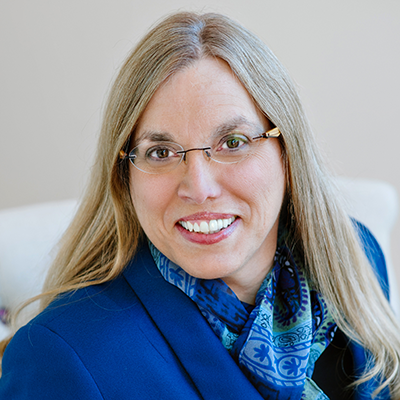
Karen Pedersen
Chief Knowledge Officer, OLC
Frank Tomsic
Director of the McCormick Educational Technology Center
Rush University
Karen Pedersen, Ph.D.
Chief Knowledge Officer
OLC
Significant changes are coming to higher education. From balancing the need for educational innovation against regulatory realities, to using data driven approaches to better understand and manage change, to a new model of the university built around competency-based assessments, these are just a few of the factors driving change. The day’s final session brings together the thoughts and conclusions generated from the OLC Collaborate – Chicago discussions to formulate a regional response to the changing educational environment. Topics gathered by OLC facilitators and scribes during breakout sessions along with those posted online by participants during the day will be used to guide this interactive final session. Led by Frank Tomsic of Rush University and Karen Pedersen from the OLC, each of the day’s keynote speakers will have the opportunity to address the collectively generated questions and topics and place them in the context of the broader changes occurring in higher education. The OLC Collaborate – Chicago response will become the second contribution to a national discussion as the OLC Collaborate sessions continue across the country.
Frank is the Director of the McCormick Educational Technology Center at Rush University. He was the founding Director of Online Teaching and Learning at the Illinois Mathematics and Science Academy, as well as the founding Director of Distance Education at Northwestern University School of Continuing Studies. A former teacher and corporate trainer, he earned his B.A. in teaching from the University of Illinois at Urbana-Champaign where he studied language acquisition theory. He earned his M.S. in computing technology in education from Nova-Southeastern University where he focused on online learning environments. He also previously directed technology programs in both corporate and education environments, and is an active member of the Online Learning Consortium, iNACOL, and the eLearning Guild.
Dr. Karen Pedersen was recently selected as the Chief Knowledge Officer for the Online Learning Consortium. In this role, she has responsibility to gather, curate and leverage the intellectual capital created by and disseminated through the organization to create and enhance services and resources provided to constituents. She will lead work in five key areas including product development leadership, learning innovation, quality enhancement, community engagement and development as well as publications, research, and policy.
Prior to joining the Online Learning Consortium, Pedersen served as the Associate Vice President for Extended Campuses at Northern Arizona University. In this role she was responsible for leading a system-wide enrollment management transformation as well as managing marketing, technology, and academic operations. She led a network of over 35 campuses in Arizona, developing new business and market opportunities, actively collaborating with and growing community college partners and concurrent admission (2NAU) learners, as well as developing scalable, integrated and lean business processes/workflows. The scope of her responsibilities included coaching and mentoring 140+ full-time staff members, 40 part-time staff members, including a growing number of student workers. In addition she was responsible for supporting over 750 full and part-time faculty members. In Fall 2014, Extended Campuses realized a 5% year-over-year increase in overall headcount across its statewide operations and a 16% increase in its online headcount (with a 27% increase in online credit hours generated).
For eleven years Pedersen served as the Vice President for Professional Studies at Southwestern College (Kansas). In that role she was responsible for envisioning and building an online program from the ground up (including seeking regional accreditation approval) and launching over 25 innovative online programs. Additionally, Pedersen had responsibility for expanding military partnerships, engaging in strategic infrastructure projects, as well as positioning the institution in an enrollment growth trajectory. Southwestern College participated in the Academic Quality Improvement Program (AQIP) through its regional accreditor (The Higher Learning Commission) and Pedersen participated in two strategy forums during her tenure. In addition, she served as an evaluator with the Kansas Award for Excellence and utilized the Baldrige Criteria for Performance Excellence in her operations. She was responsible for managing a $3.9 million operating budget and an $11.8 million revenue stream, growing the revenue generated by nearly 500% during her tenure.
Pedersen also held the academic associate and dean roles at Upper Iowa University’s Extended University for four years. In these roles she was responsible for curriculum development, supporting academic issues, learner success, as well as faculty hiring, training, and evaluation. She also built the foundations for an online operation and traveled internationally to develop partnerships in Singapore, Hong Kong, and Malaysia.
Prior to starting her administrative career, Pedersen served as a faculty member at the University of Nebraska at Kearney. Pedersen holds bachelor of science and master of science degrees from the University of Nebraska-Lincoln and a doctor of philosophy degree from Oklahoma State University. She currently serves as an associate consultant for DemandEngine supporting enrollment management consulting projects. In the past two years, she has also worked collaboratively with the Indonesian National Police and the US Department of Justice to provide professional expertise for a major distance education initiative.
What will teaching, learning, and working in the Digital Age of Higher Education actually be like in 2025? How much should today’s faculty and administrators do to prepare for this future? There is no question that extraordinary change is coming. The question is, how much of that change is within our powers of prediction, and how should we proactively prepare for the future?
Participate in the regional OLC Collaborate discussion on the “Changing University” and share in an open dialogue with other colleagues from around the region.
Keynote speakers will offer insightful views of the changing university through short, focused presentations. This will bring together how the use of technologies, the dictate of economic realities, increasing regulatory oversight, the need for constant innovation, and new societal expectations of what colleges can and should be are bringing change to higher education.
Presentations will be followed by facilitator-led discussions to allow participants to delve into each topic in greater detail. OLC Collaborate scribes will document the discussions throughout the day, culminating in a collaborate regional response to the changing university .
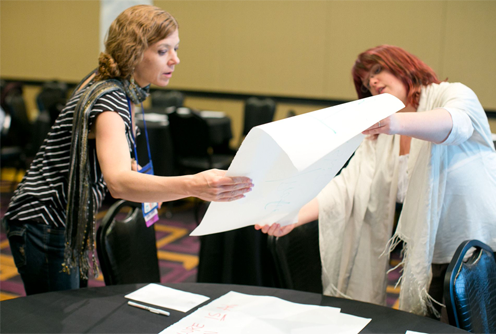
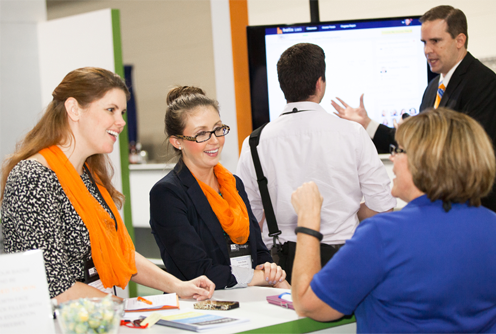
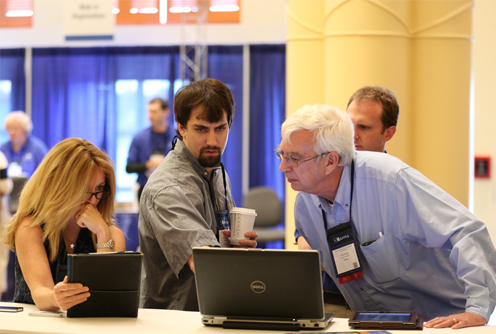
BREAKOUT SESSIONS
BREAKOUT SESSIONS
BREAKOUT SESSIONS
General Sessions are 30 minutes long, followed by a 45 minute Breakout Session.
Attendees will select one of four Breakout Sessions to attend following each general session.
All sessions are considered BYOD (Bring Your Own Device). There are 15 minute breaks between concurrent sessions.
All sessions are in the Rush University Armour Academic Center. All Sessions are in Central Time (CT).
Joining us for the day? Come directly to Rush University
Rush University, Armour Academic Center, 600 S. Paulina Street, Chicago IL 60612
Staying the night or making a weekend of it?
Chicago Marriott at Medical District/UIC
Rooms for OLC Collaborate at the prevailing hotel rate.
Book your room
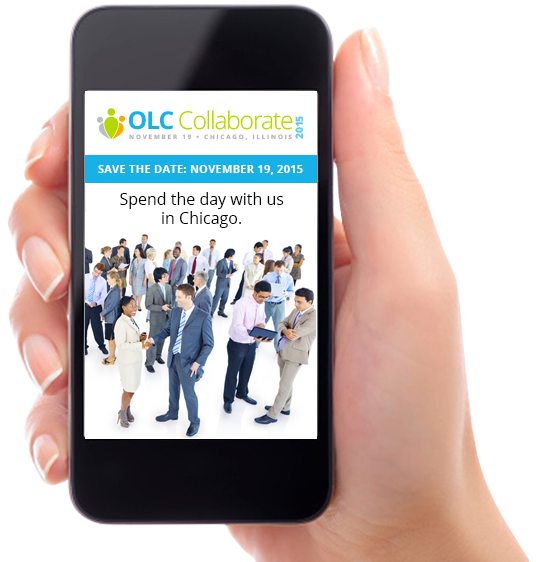
Rush University is a top-ranked university with an exclusive health science focus that was founded in 1972. The University has expanded from one college and fewer than 100 students to four colleges — Rush Medical College, the College of Nursing, the College of Health Sciences and The Graduate College — and an all-time high of 2,457 students in 2014-15.
To find out more, visit our website and follow us on Facebook, Twitter and Instagram.
Today’s student learns on the go – through their mobile device, online, or even from a distance. With TechSmith video and lecture capture solutions, reach every student with engaging video lessons they can watch again and again, on any device, when it works for them. TechSmith makes it easy for instructors to save and share knowledge, on and off campus.
Pearson, the world’s leading learning company, partners with institutions and educators to provide personalized and connected learning solutions. Pearson delivers comprehensive educational services for on-ground, blended and online programs including digital content, curriculum development and course design, market research, recruitment marketing, student support and retention services, faculty training, and cloud-based learning management systems with advanced data analytics to monitor trends in student performance. Pearson is on a path to efficacy, with a commitment to measurable and improved learning outcomes for students worldwide.
For more information visit: www.pearsonhighered.com/online-learning
If you are an education technology or distance learning company, this intimate one-day session will give you the chance to collaborate with educators, administrators, and online learning professionals – your potential clients in discussion forums, at lunch and in our small exhibitor showcase.
To learn more, contact our Manager, Sponsorship Sales, Brenda Weiss-Pesta by email, brenda.pesta@onlinelearning-c.org or by phone, 617.716.1417. Or simply download our prospectus below.
